In the realm of business, understanding the distinctions between small businesses and entrepreneurs is crucial for navigating the dynamic landscape of commerce.

While daily messages entities operate within the realm of entrepreneurship, their approaches, objectives, and characteristics set them apart. Small businesses typically focus on providing products or services to meet local or niche market demands, often with a stable growth trajectory in mind. On the other hand, ideas to boost entrepreneurs are known for their innovative ideas, risk-taking propensity, and a relentless drive to disrupt industries or create new markets. Recognizing the nuances between these two business models can offer valuable insights for aspiring business owners and industry observers alike.
Understanding Small Businesses and Entrepreneurs
Small businesses and entrepreneurs play distinct yet interconnected roles in the business landscape. Small businesses generally cater to local or niche markets, focusing on steady growth and stability. On the other hand, entrepreneurs are known for their innovative ideas, willingness to take risks, and their drive to disrupt industries or create entirely new markets. Understanding these differences is crucial for individuals looking to venture into the business world and for those keen on analyzing industry dynamics.
Characteristics of Small Businesses
Small businesses are distinguished by their size, structure, and operational approaches, setting them apart from entrepreneurs. Understanding these nuances is crucial for those navigating the business landscape.
Size
Small businesses typically have a limited number of employees, often fewer than 500 workers. This compact workforce allows for more personalized interactions with customers and agile decision-making.
Structure
The organizational structure of small businesses is usually less complex compared to larger corporations. Decision-making processes are often streamlined, with a direct line of communication between employees and management. This lean structure enables quick adaptations to market changes and customer feedback.
Characteristics of Entrepreneurs

Entrepreneurs are known for their innovative mindset, constantly seeking out new opportunities and novel solutions to existing problems. They possess a high level of creativity, enabling them to envision unique business concepts and strategies that disrupt traditional markets. Entrepreneurs are often characterized by their risk-taking propensity, willing to venture into uncharted territories and embrace uncertainty for the prospect of substantial growth and success.
Moreover, entrepreneurs exhibit a strong sense of passion and determination towards their ventures, fueling their perseverance in the face of challenges and setbacks. This relentless drive motivates them to overcome obstacles and persist in pursuing their goals, even in the midst of adversity. Additionally, entrepreneurs demonstrate exceptional leadership qualities, inspiring and guiding their teams to achieve shared objectives and realize the vision of the business.
Furthermore, entrepreneurs possess a keen ability to identify and capitalize on emerging trends and market gaps, leveraging their strategic foresight to stay ahead of the competition. They are adept at seizing opportunities swiftly and adapting their business models to changing environments, ensuring continued relevance and sustainability in dynamic industries. Lastly, entrepreneurs are adept at fostering valuable networks and partnerships, harnessing relationships to drive growth, innovation, and collaboration within their entrepreneurial ecosystem.
Key Differences Between Small Businesses and Entrepreneurs
Detailing the key distinctions between small businesses and entrepreneurs is crucial for understanding their unique roles in the business landscape. Small businesses typically focus on localized or specialized markets to ensure steady growth, while entrepreneurs are recognized for their groundbreaking ideas and risk-taking attitude. Below are essential differentiating factors between small businesses and entrepreneurs:

- Size and Scale:
- Small businesses usually have fewer than 500 employees, enabling personalized customer interactions and nimble decision-making processes.
- Entrepreneurs often start with a smaller team or as solopreneurs, emphasizing flexibility and adaptability in early-stage operations.
- Organizational Structure:
- Small businesses tend to have simpler organizational hierarchies, leading to efficient decision-making and rapid responses to market shifts based on client input.
- Entrepreneurs operate with more fluid structures, allowing for quick adjustments to their business models and strategies as they navigate the uncertainties of the market.
- Mindset and Approach:
- Small business owners often lean towards stability and gradual growth, focusing on building a loyal customer base and maintaining a sustainable business model over time.
- Entrepreneurs embrace innovation, take calculated risks, and exhibit a high degree of resilience in the face of challenges, constantly seeking to disrupt existing paradigms and create new market opportunities.
